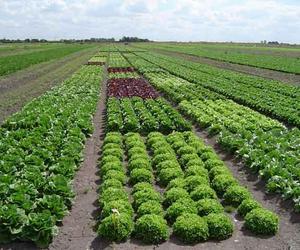Techniques for sustainable agriculture
- Submitted by: Luis Manuel Mazorra
- Science and Technology
- 02 / 29 / 2012

In the central province of Ciego de Avila workers Bio Research Center (IBC) perform tests of new techniques for sustainable agriculture through the use of pig waste as fertilizer for the soil, hoping thereby increasing the quality of some crops.
The group, based in the municipality of Morón, waste applied in an experimental area planted with corn, tomatoes and beans, in which the harvest volume exceeded 40 percent from a plot without manure, indicates the digital edition weekly Invasor.
Experiments carried out from the treatment by anaerobic assimilation system, which used liquid and sludge for irrigation and as a natural fertilizer, in that order, a result that testifies to a sustainable and safe alternative for Cuban agriculture.
Yamile Jimenez Pena, Master of Science and principal coordinator of the project, explained that they used pig waste on land of low natural fertility, resulting in remarkable stability of organic matter.
He gave the example of the surface promoted with beans of the variety Miracle Villa Clara, which contributed 2.5 tonnes per hectare, a ton above normal.
This is due to growth in the size of the leaves, the plant, number of pods and grain weight, Jimenez said Pena.
He added that the physico-chemical and health of the liquid and solid wastes from swine faeces showed no pathogens or other harmful parasites that affect the quality of the crops tested for human or animal consumption.
The IBC provides technical training and to pig farmers, especially in the municipalities of Florence, Majagua, first of January and Ciego de Avila, about the advantages of the use of waste to produce methane gas and enrich the topsoil.
Comments